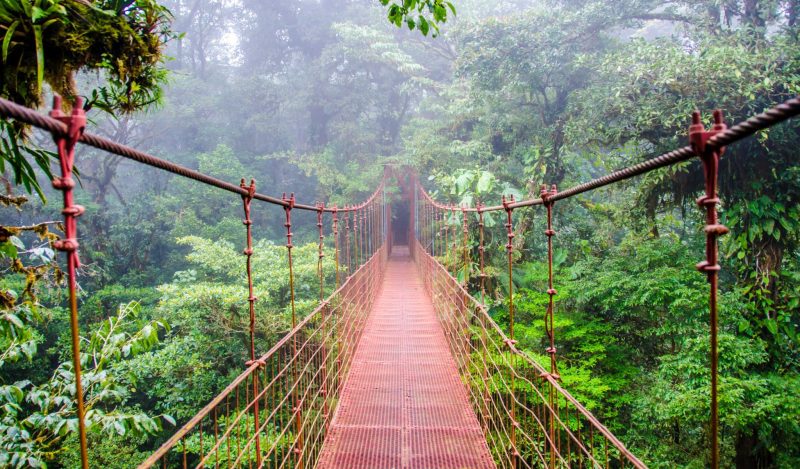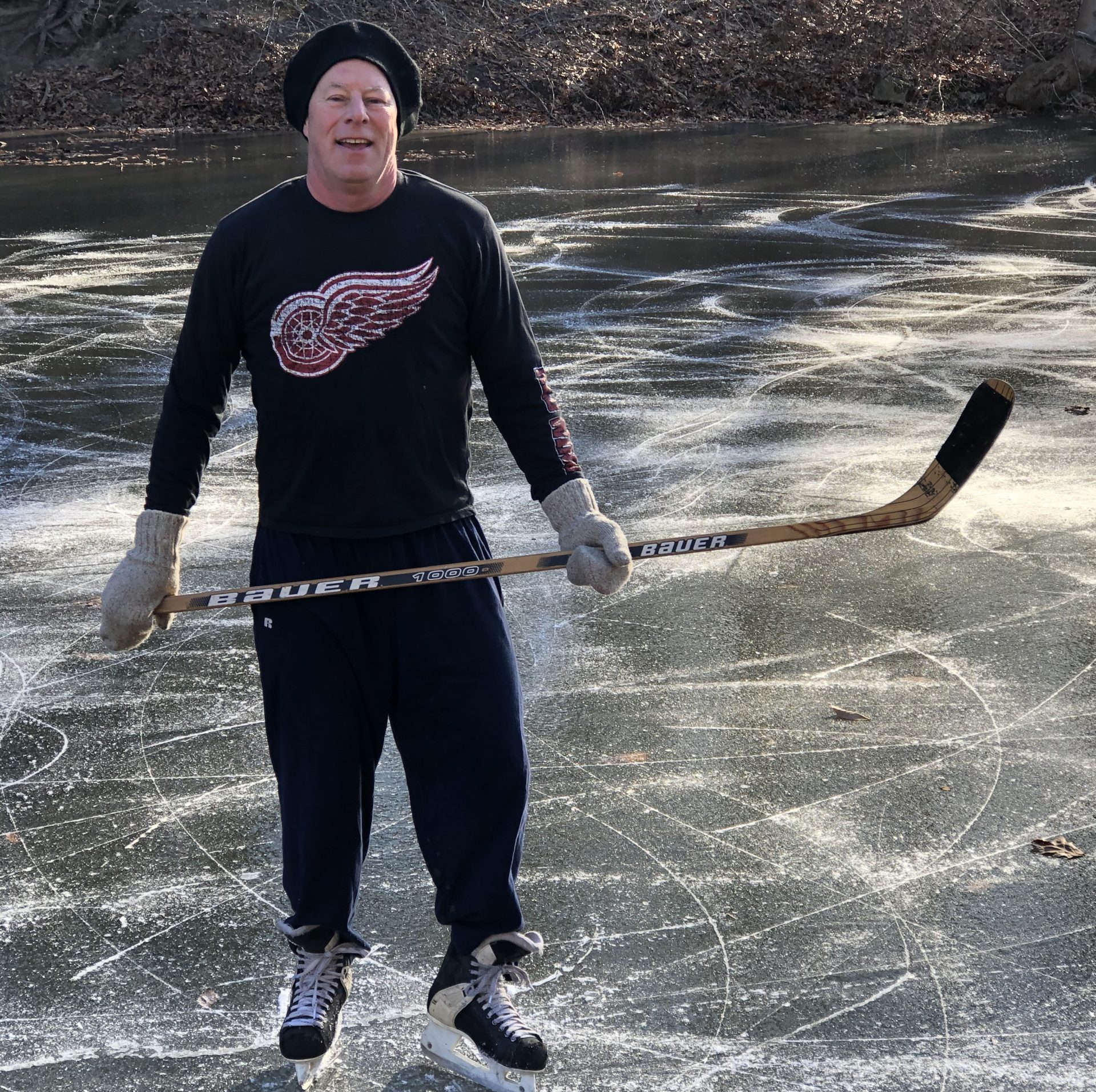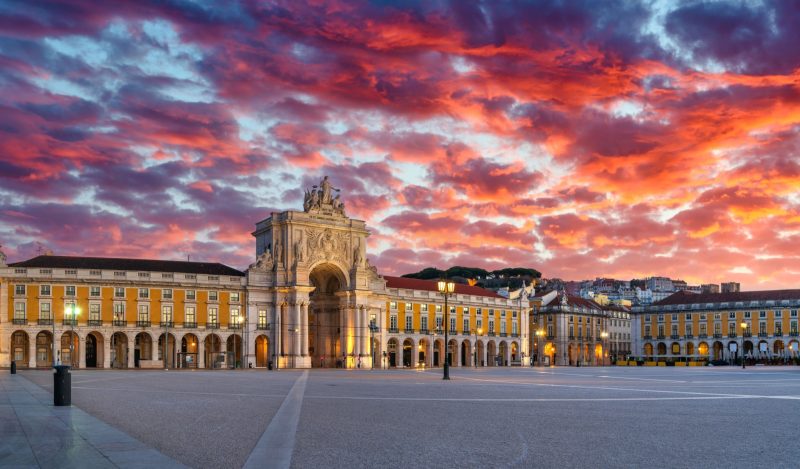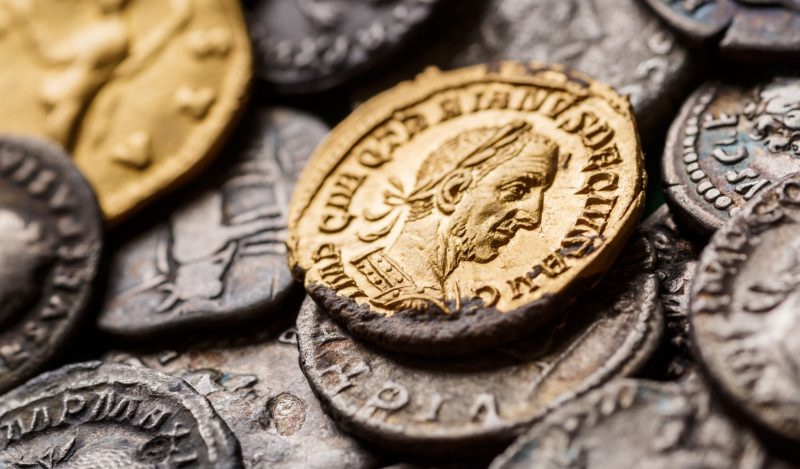Last month, my wife, Ellen, and I visited Costa Rica. Being there reminded us of our prior trip there in 1989, before it went zip-line/eco-tourism mainstream. At that time, after riding six hours from the capital, San Jose, in an old school bus, mostly on rutted dirt roads, we stayed in a remote Pacific Coast village. Geographically, logistically and scenically, it felt like the end of the world: monkeys swinging through lush forests that adjoined empty beaches sloping into waves in an unimaginably vast ocean.
Each morning and afternoon, small groups of schoolkids wearing uniforms of white cotton shirts or blouses above dark pants or skirts and carrying small backpacks walked by on the sand between their unseen homes on some distant part of the mile-long crescent beachfront and an unseen school at the other end. All but one of the kids had brown skin and black hair. The outlier was a blonde, sunburned ten-year-old boy.
Later that week, a tallish, also incongruously sun-reddened and blonde Caucasian man in his early forties, wearing a white, wide-brimmed hat, approached us on that otherwise empty beach and asked, in unaccented English, where we were from.
We began to chat. This tightly-wound guy had been a California dentist who had emigrated some years ago and now permanently resided in that coastal village, where he had become a small-scale commercial fisherman with a little boat, to which he pointed, anchored offshore. For him, this outpost was a refuge from a collapsing world. He spoke very disdainfully about North American culture.
A few years after we met this neo-fisherman, I rented the VHS video of the Harrison Ford 1986 movie, The Mosquito Coast. The fisherman’s persona closely resembled that of Ford’s deeply disaffected protagonist, who had also fled from his United States homeland. I half-wondered if Paul Theroux had, in his travels, met this fisherman before I did and based his eponymous novel on the fisherman; or if Central America was just a magnet for embittered expats.
Especially after the past three years, I can understand the perception that the United States is doomed and rotten. But I don’t want to succumb to that view. And I sure didn’t 34 years ago; deep pessimism about one’s homeland isn’t the right mindset for those who are—as we then were—about to have kids. Besides, while flawed, 1989 America seemed much more stable than 2023 America has become. Back then, the Berlin Wall had just been demolished and, as Francis Fukuyama optimistically predicted in his critically-acclaimed book, The End of History, a wave of elected post-Cold War governments and prosperity would soon sweep the globe.
Despite that rosy zeitgeist, the fisherman anxiously expressed during our half-hour conversation his belief that America would soon collapse from what he called “The Plague.”
I asked him what plague he was talking about. Did he mean AIDS?
He affirmed that he did.
I told him that this disease was only affecting a tiny, clearly identifiable fraction of the population. He seemed surprised by, and skeptical of, my perspective. I asked him what he had seen or heard to make him think that that virus might soon wipe out a diverse, populous nation. I forget which source he cited; he told me he didn’t own a TV. I think he referred to some story/stories he had read or seen in/on some mainstream media outlet; maybe an old copy of Time or someone else’s TV.
No matter where he got his information, I knew he was off-base. I didn’t feel a need to convince him that AIDS was nowhere near a nationwide “existential threat.” (That label hadn’t been invented or badly overused yet). I just told him that I lived in densely-packed Hudson County, New Jersey, five miles from NYC, I knew a lot of people, none of them had AIDS and, based on my direct, up-to-date observations, America was not in universal viral peril.
I was surprised that an ostensibly educated person would so strongly and mistakenly believe that AIDS, or any other infectious disease, could cause an Apocalypse. Viruses are self-limiting. Humans have been around for a very long time. Why, and especially when so many people had enough calories and protein and sanitation to build baseline health, would anyone expect a virus with a distinct, demographically-limited risk profile to kill everyone?
I could not have foreseen that 31 years later, much of the US would lose their heads over a virus that only endangered a tiny fraction of old, already sick people.
The fisherman hadn’t actually seen Americans dying en masse of AIDS. Yet, he believed they were, and believed that legions of heterosexuals and non-users of shared needles were also dying, even though they were at functionally zero AIDS risk. I didn’t know then that, as potential Presidential candidate RFK Jr. suggested in his 2022 book, The Real Anthony Fauci, some people think AIDS reflected the abuse of an immune-impairing, gay party drug, amyl nitrite. The media never mentioned that notion. If it’s true, the AIDS epidemic would resemble the SARS-CoV-2 “Pandemic,” in that deaths from other causes were misattributed to a virus.
Then, but especially now, many people eagerly embrace Doomsday scenarios. During my lifetime, various people have asserted that nuclear annihilation, Islamic terrorism, global warming, ozone layer holes, pollution-driven cancers, Y2K, various killer microbes, or other phenomena would kill millions, or billions, of people. But as are all living organisms, humans are resilient. If life were so fraught with universal peril, the world’s population would have, at least intermittently, shrunk, instead of having grown continuously to over 8 billion. Despite all of the social disruption and the purported lethality of the latest in a long line of Coronaviruses, the world population has grown significantly even during the past three years.
Too many Americans are gullible and fearful. Many blindly believe what the media presents and thus, suffer from mass delusion and anxiety. The media feels no obligation to tell the truth. To the contrary, news managers deliberately distort and sensationalize information to create alarm and audience/readership. No institution will punish them for their chicanery. Thus, they continually, routinely misrepresent.
It’s astounding and disappointing that many people don’t see this. You might think that, after having lived through so many ostensible crises, people would be more skeptical of all the doom and gloom. But tens of millions freaked out when they heard media buzz-terms like “novel virus” and “spiking Covid cases and deaths;” as if every virus were not, to some extent, novel and as if the medical establishment and government could be trusted to generate and cite accurate statistics. No matter how outlandish some statistics seem, many people consider these stats true simply because they’re expressed in numbers.
In March, 2020, many news reports and public health experts fanned the flames of Coronamania by comparing SARS-CoV-2 to the 1918 Spanish flu. Recently, some commentators have reexamined the Spanish flu narrative. They say that 1918 death tolls were greatly exaggerated and that most deaths attributed to the flu were really caused by medical errors, especially the prescription of high doses of aspirin, then a new drug. Similarly, a century later, both the overstatement of “cases” and of deaths caused by iatrogenic medical interventions drove the Covid scare.
But people needed little encouragement to panic in 2020. They liked imagining that they were part of some grand historical crisis. Living through something called “The Pandemic” conferred excitement and purpose. The label also nullified reason.
As did the fisherman, and especially after the pandemic began, many Americans feared a complete social and economic breakdown. Some are “preppers,” who want to grow their own food and/or stockpile food, water, arms and ammunition. I’ve long admired the knowledge and discipline of those who want to be self-sufficient: to build/rehab their own houses, grow and prepare their own food and play their own music or sports; I dabble in each of these. But true, comprehensive self-reliance seems unrealistic, especially in places with cold winters. Meeting all of one’s own physical needs is challenging. It takes abundant skill and hard work.
In the event of e.g., a strong storm or a series of bank failures, I guess there’s no harm in having some tins of sardines and jugs of water in your basement. But fleeing and hiding from the world doesn’t feel like a serious, sustainable option. Instead, it seems, among some of the people I have met, to reflect a misanthropic desire to run from other people or from one’s past, rather than a rational reaction to a realistic threat. If the stuff really hits the fan, survivalists will have to live way out in the sticks and/or be armed to the teeth and have deep ammo reserves. In areas with any sort of population density, there would just be too many desperate people to fend off.
Besides, nearly all people crave some human contact.
But back to 1989. After the long, bone-rattling trip to the fishing village, we learned of a small airplane that would make the return trip to San Jose in 45 minutes. The flight cost $12/person; an extremely good value, even then. A jeep took us fifteen minutes through a forest to a grass field next to the ocean. A small plane descended from the sky and landed on that unpaved strip. Fifteen people disembarked.
Ellen and I were among the fifteen who refilled the craft. So, by coincidence, was the fisherman. He explained that the motor on his fishing boat had broken. He needed a replacement part that he could only get in San Jose.
Maybe the fisherman could live in near isolation much of the time. But if he couldn’t have traveled back to a population and business center—where germs are readily passed—he wouldn’t have been able to pull his food and livelihood from the sea.
And as the bus and plane ran on most days, other people from his village traveled to San Jose on those days to do their business. If there were some virus going around—and there always is—some of the day-trippers would inevitably have carried it from the metropole to the village. As the boxing champion Joe Louis said, “You can run, but you can’t hide.”
Unsurprisingly, during our beach conversation, the fisherman told Ellen and I that the blonde schoolkid was his son. He said that his son wanted to become a world-famous saxophone player. I wonder how close that kid came to fulfilling that goal. He’d be in his forties today. I also wondered how he could become a famous musician if he didn’t leave his tiny village and play in crowded spaces across the big, bad microbe-swapping world. He would also have needed a rhythm section.
We all depend on others to support us, both logistically and socially. And others reciprocally rely on us. This is the main reason that locking down, closing schools, churches, parks, gyms, etc. and restricting travel were terrible ideas.
Unless some people were deliberately trying to mess things up.
Wait. Do ya think?
Restrictions on social contact were also wrong because they didn’t crush a virus. Nor could they have. Viruses don’t simply vanish into the ether when people hide from each other.
Whether the fisherman’s son became a famous jazzman or not, and assuming the fisherman wasn’t eaten by a shark after falling overboard while fishing, I wonder if, over the past three years, he’s been wearing a Covid mask when he walks along the deserted beach. Or if he masks up while he’s out in the ocean, hauling in his catch.
I mean, because of The Plague and all.
Republished from the author’s Substack
Published under a Creative Commons Attribution 4.0 International License
For reprints, please set the canonical link back to the original Brownstone Institute Article and Author.









